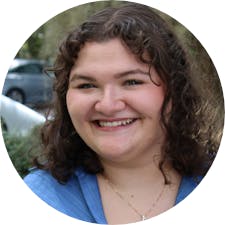Living just above poverty level and behind a revolving door of family, Wendy Krzoska said she couldn’t afford private school growing up.
At 42, her door still swings open, raising her relatives’ children and a daughter of her own. But thanks to scholarship money, private school is a priority for the five kids she’s raised.
“Parents who can afford to pay for their child's schooling, they should” Krzoska said. “But I think that it’s also good that there [are] foundations that can help to pay for those who cannot.”
More students, regardless of income, will now have that same opportunity.
Gov. Ron DeSantis signed school choice legislation March 27 that expands the eligibility of state-funded scholarships to attend private schools to students who are Florida residents and in grades K-12.
Scholarship amounts for the 2023-24 school year depend on the level of funding provided by the legislature to each school district, Florida Department of Education spokesperson Cassandra Palelis wrote in an email. They won’t be set until the end of the legislative session when the state budget will be finalized.
Not all private schools in the state have to accept these scholarships.
Within Alachua County Public Schools, recipients of the scholarships were provided around $7,000 based on the amount of funding the district received per student for the 2022-23 school year.
A private school student who receives a scholarship but doesn’t need the money for tuition can place the funds into an education savings account or use it for expenses like tutoring.
Scholarship priority will be given to students living in foster care or whose annual household income level is between 185% and 400% of the federal poverty level.
But not everyone sees the bill as financially reasonable.
Alachua County Public Schools spends 85% of its budget on staff, said Jackie Johnson, ACPS spokesperson. A certain number of students must leave a public school in order to eliminate a teacher position and save the district money, she said.
“If you're not able to save staff or reduce the number of staff because kids aren't leaving in those nice, neat bundles of 18 or 22 or 24, you're not really saving, but you are losing money,” she said. “But we'll have to see how all this shakes out.”
Nearly 2,000 ACPS students participate in the voucher program to go to private school on state funds, which are split between the Family Empowerment Scholarship for Educational Options and the Family Empowerment Scholarship for Unique Abilities, or special needs.
Krzoska’s kids go to private school thanks to funds from the Step Up for Students scholarship, a program that issues payment to the educational options scholarship.
Sending them through Living Springs Academy was a religious-based choice — Krzoska is a Seventh-day Adventist. But she said there are more benefits to private school than the Christian education her kids receive.
“When our Elizabeth was in second and third grade, there [were] a lot of public school shootings going on,” she said. “I've never had to once worry about school shootings.”
Still, there are some services, like a school nurse or counselor, that private schools don’t always offer, said Christina Miller, owner and head of school at Gainesville’s Millhopper Montessori School.
Because of the school voucher expansion, Miller said she has to be extra careful detailing what Millhopper can and can’t provide.
“It's exciting to have something moving in this direction,” she said. “But it's also important to watch how it morphs, for lack of a better word, into something that could be detrimental to private schools being independent.”
It’s also possible students will sign up for a private school, intending to receive a scholarship, but the money may not come through, Miller said.
“Some of those things, I'm just not sure,” she said. “I don't have a crystal ball.”
Younger students have been less enrolled in private schools over the past few years, Miller said. But if the bill were to increase enrollment, she said Millhopper would have the room.
At the school her daughter attended on scholarship, High Springs’ First Christian Academy, ophthalmic technician Betty Radford said there are 43 people on the waitlist — all coming from public schools.
“It's great to give the low-income families a chance that they may not have,” Radford said, “But then again, just because you make more money doesn't always mean you have more disposable money.”
On top of the Christian education and close relationships with faculty, Radford said she appreciated First Christian Academy because it allowed her input on her child’s curriculum.
The scholarship expansion is estimated to cost taxpayers $4 billion, according to the Education Law Center.
For ACPS, a loss of students to this program could cause a loss of funding from the district, Johnson said.
“We have to assume this is going to have an impact on our budget,” she said. “Even if the scholarships go to somebody who was never in one of our schools or in any public school … that is a reduced amount of funding for public education in general in the state of Florida.”
Contact Lauren at lbrensel@alligator.org. Follow her on Twitter @LaurenBrensel.

Lauren Brensel is a journalism sophomore and a metro reporter for The Alligator. In her free time, she's found going on mental health walks, being silly with friends, hiding from the public and reminding those around her that they did this song on Glee.






